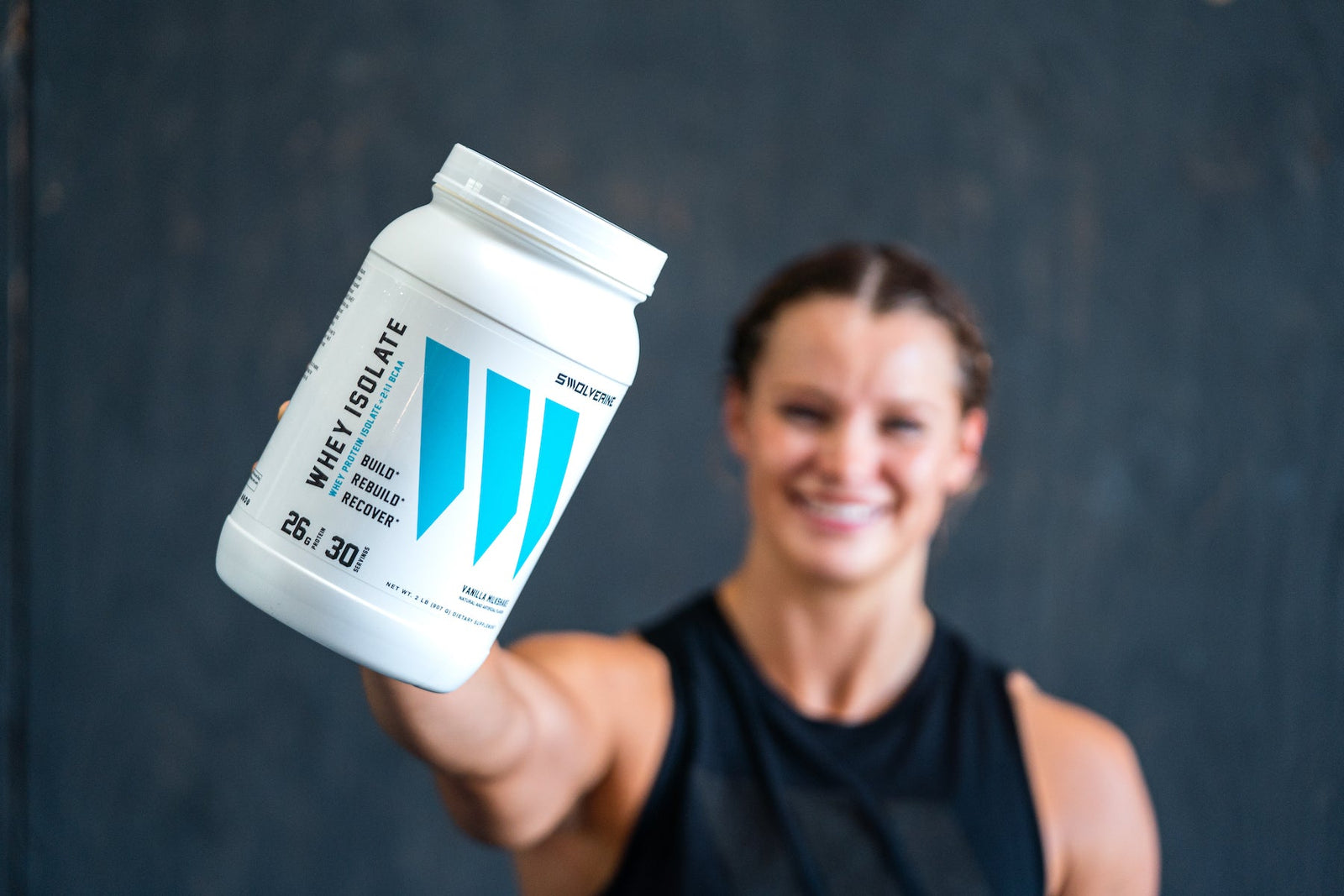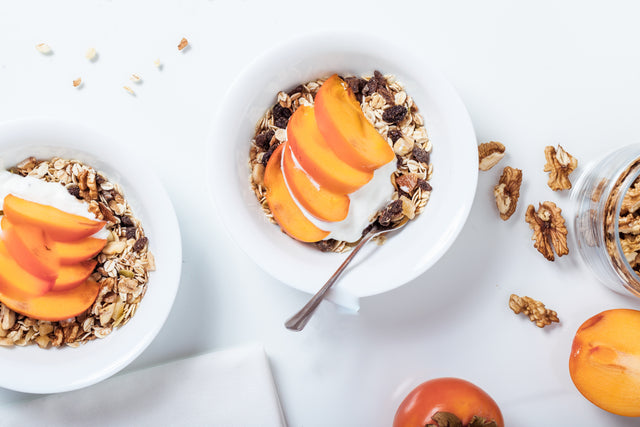When you’re pushing the limits of your performance, supplements can help elevate your results—but like anything else in nutrition, the details matter. Nutrient timing, dosage, and how supplements are taken together can make a big difference in your outcomes.
Two of the most researched and effective supplements for strength, size, and performance are creatine and protein powder. But is it effective—or even safe—to mix the two together?
Let’s explore the science of creatine and protein supplementation, and whether combining them gives you an edge.
What Is Creatine?
Creatine is a naturally occurring compound synthesized in the body from three amino acids: glycine, arginine, and methionine. Roughly half of your body’s creatine comes from food (primarily red meat and fish), and the rest is produced by the liver and kidneys.
Once consumed or produced, creatine is stored in muscle cells as phosphocreatine, where it plays a critical role in ATP production—the body’s primary form of cellular energy.
“Creatine supplementation increases intramuscular phosphocreatine levels, enhancing ATP resynthesis during high-intensity activity.” — Kreider et al., Journal of the International Society of Sports Nutrition
This energy system is especially important during anaerobic exercise, such as weightlifting or sprinting. Creatine supplementation has been shown to:
-
Increase muscle mass
-
Enhance strength and power
-
Improve workout performance and recovery
What Is Protein Powder?
Protein is one of the three macronutrients, made up of 20 amino acids—9 of which are essential and must be consumed through diet. Protein supports muscle growth, repair, and recovery, particularly after resistance training.
Protein powder supplements, such as whey protein isolate, are popular because they offer a convenient, fast-digesting source of complete protein, high in leucine, the key amino acid that stimulates muscle protein synthesis (MPS).
“Whey protein is rapidly absorbed, contains high levels of essential amino acids, and strongly stimulates muscle protein synthesis.” — Phillips et al., The American Journal of Clinical Nutrition
Protein powders are particularly useful for:
-
Post-workout recovery
-
Increasing daily protein intake
-
Maintaining lean mass during dieting
Can You Mix Creatine With Protein?
Yes—you absolutely can mix creatine with protein powder, and it may even be advantageous to do so.
Here’s why:
-
Creatine is flavorless and soluble, making it easy to add to any protein shake.
-
Whey protein naturally contains the amino acids (arginine, glycine, methionine) that synthesize creatine in the body.
-
Both supplements are most effective when taken consistently, especially around training.
“Co-ingestion of creatine and protein may enhance muscle creatine retention and anabolic signaling.” — Candow et al., Applied Physiology, Nutrition, and Metabolism
Combining creatine and protein in a shake is efficient, convenient, and helps streamline your supplementation protocol, improving compliance and consistency.
Why Mixing Creatine and Protein Works
Unlike pre-workouts or caffeine, creatine and protein do not yield instant effects. Their benefits are realized through consistent, daily use over time:
-
Creatine: Builds up muscle stores of phosphocreatine over time to improve ATP regeneration and workout capacity.
-
Protein: Needs to be consumed daily to meet amino acid needs, support recovery, and stimulate MPS.
Both play distinct but complementary roles in enhancing muscle size, strength, and performance.
“Creatine enhances strength and lean mass gains, while protein provides the necessary amino acids for tissue growth and repair.” — Antonio et al., Journal of Strength and Conditioning Research
When to Take Creatine and Protein
Creatine Timing: Pre vs Post Workout
Research is mixed on whether creatine is more effective before or after workouts. However, several studies suggest that post-workout ingestion may offer a slight advantage.
A 4-week study published in JISSN compared pre- vs post-workout creatine supplementation. Participants who took creatine after workouts gained more strength and lean mass than those who took it before.
“Post-exercise creatine supplementation may be superior for improving body composition and strength.” — Antonio et al., JISSN
A longer-term study in older adults also found that post-exercise creatine supplementation produced greater muscle strength and lean mass gains over time.
“Post-training creatine intake led to greater increases in strength and lean tissue mass compared to resistance training alone.” — Candow et al., Medicine & Science in Sports & Exercise
That said, other research shows no significant difference between pre- and post-workout intake. The key takeaway? Timing matters less than consistency—but taking it close to your training window may be more effective than not.
Protein Timing
Whey protein isolate is rapidly absorbed and ideal for both pre- and post-workout use:
-
Pre-workout: Elevates plasma amino acid levels and provides fuel for training
-
Post-workout: Supports recovery, reduces soreness, and initiates muscle repair
“Pre-exercise protein ingestion stimulates MPS and increases whole-body net protein balance during resistance training.” — Tipton et al., The American Journal of Physiology
Creatine + Protein: The Perfect Stack?
Combining whey protein isolate with a pH-buffered creatine like Kre-Alkalyn® offers:
-
Greater muscle saturation of creatine
-
Efficient recovery support through fast-digesting protein
-
Enhanced anabolic signaling and strength output
-
Convenience and compliance through one simple shake
This combination is backed by science and favored by athletes who value both performance and practicality.
Can You Mix Creatine With Protein? Final Takeaway
Yes—you can and should mix creatine with your protein shake, especially around your workouts. Together, these two supplements:
✅ Increase muscle strength and endurance
✅ Enhance lean body mass
✅ Improve post-workout recovery
✅ Maximize consistency and efficiency in your routine
For best results, aim to take 5g of creatine and 20–30g of whey protein isolate immediately post-workout. This strategy helps flood your muscles with amino acids and replenish ATP stores at a critical time.
“Creatine and protein represent two of the most effective, evidence-based supplements for improving body composition and athletic performance.” — Kreider et al., Journal of Strength and Conditioning Research
Find similar articles:
Supplements




